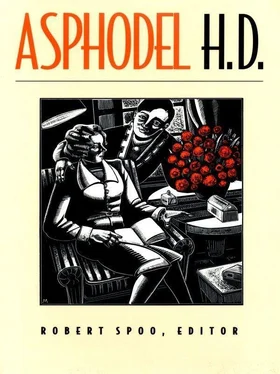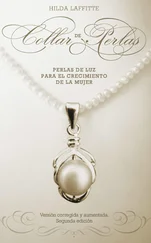She shouldn’t wear the violets that he sent her for she had found out in a number of little ways, whispers, innuendoes, outright comment, that he wasn’t rich. He had given the impression of an insouciance that went with wealth, had thrown his head back, had grubbed in pockets for taxi fare, had said he hated good clothes. People at Delia’s, the most smart (Delia had pointed out) were the most shabby. “Fenton with his Eton affectations.” People who had been to Eton, to Cambridge, were allowed to slouch into rooms, to wear their clothes anyway. People wore or didn’t wear clothes as they did (or didn’t) in America. Each country had its standards. It was here apparently “smart” (as they called it) to be shabby. “You have to be a Duchess to dress like a fish-wife.” Someone had commented on someone who was not a Duchess but who dressed like one. “It’s sheer crass outrage. Putting on airs. She’s making out her pedigree to be somewhat on the grand scale.” “How do you mean, Delia? But she’s shabby.” “I mean that people here can’t be shabby unless they’re great. We are not obliged to accept that amount of dowdiness from a solicitor’s widow. Plus the grand air. Noblesse oblige. But she isn’t. We are not obliged to accept her just because she’s shabby.” It was all very complicated. Certain people had to be smart, others were allowed not to be. It was affectation to be too well dressed or it was an outrage not to be better dressed. Hermione had long ago given it all up. Her own little ideas had been further confused by George Lowndes. “You’re too nun-ish. That grey might be all right in Philadelphia.” But she didn’t care now. Something in her didn’t any more care. Someone had said he liked her in her slightly draped effects, the grey that flowed like water (he said) though she wasn’t Undine. Someone had said that everything she wore was perfect, different from anything he had yet seen, right and smart and yet not over-done. Not, as he said, obvious. Someone had said he hated English women with that rank colour (did he mean the Dalton?) and their grabbing insistencies. Someone had said English women were harpies, were dowds, were immaculate prudes or were Hell harpies. Someone had said there were in England pas de nuances (he said it in that French way) and that he had found in her the veritable Golden Fleece. Golden Fleece. Star. What did he not call her? His phrases, his expletives were marred when judged by intellectual standards. When judged by the intellect they were perhaps trite, shallow. Hermione did not judge them by the intellect. Something seemed to flow in her, about her. She had been hurt. Someone had seen that. Before she offered any explanation. Having offered explanation, he had seen it further. “But damn. I never knew a girl who read Greek.” “I don’t.” “I mean I never met a woman who knew remotely what Greek, what Greece stood for. You might do some essays.” “O essays? George thinks I’ll spoil my — style, he calls it, by essays (as far as I can make out) anything.” “Lowndes has printed something?” “No. He says I’m not modern enough and I’m too modern.” “What does he think he means by that?” “I don’t know. He doesn’t. But he wants to — to — somehow suppress me.”
George seemed to have put himself out no end to damp her ardour. Always with some little jibe. “Why don’t you move out of that infernal Bloomsbury? You can’t live there.” She had finally moved to Portman Square. But she didn’t like it very much. “You must live somewhere that I can send my friends to.” “But I don’t want you, your friends.” “You can’t expect me or anyone to call on you in Bloomsbury.” “No. Not in this house. I have only my room.” “Well you have to clear out to somewhere somehow decent. You can’t stay on here.” It seemed he was purposely wilful, purposely dragging her up, away. It was just as well he did this. The fog, the mist — crouched on the floor thinking — thinking. Rain had dripped and dripped. November. November in Bloomsbury. December. December in Portman Square. A drawing room and a knot of bridge playing habitués. “O Miss Gart. What? Another caller.”
But this wasn’t Portman Square. It was other. The Elgin Marble room, mid-winter afternoon. Violets pushed down into her grey long coat and violets breathed up into her face. Violets. These were curled slightly at the edges, slightly ruffled, a little different from all other violets. Ivy leaves about the bunch made a stiff little case, a holder for these violets like a Victorian wedding bouquet. The ivy leaves held the flowers stiff, gave them power, authorised them to flow outward being held so close. Ivy. The Bacchanalias. Ivy leaves.
She had found the clue now and this was it. Jerrold Darrington had given her the clue. This was the clue, the thing that had been for some two (almost three) months lacking. Darrington had given her in his odd witty way the clue. Darrington said the old Theseus there looked as if he had fallen over board, got worn thin with sea-water. The torse of Theseus from the Parthenon pediment did look that way. “We’ll go upstairs, look at those Tanagras.” What was it Darrington had that all the others hadn’t? He was different somehow. He cared about things, didn’t laugh when she said she wanted to see some old Persian manuscripts she had read about once in America. America even drew no smile, no cynical jibe from his store of quick repartee, of quick and bantering cynicism. When she said “America” she expected him to say (she was even in those days affable to all these witticisms) “Where’s that?” He didn’t. It was somehow so odd. What was it about Darrington. When she asked him he said “I suppose it was the misalliance. My governor you know married a country wench. Damn clever of her. She copped the old fellow down hunting. I was born six months after though they say in hushed tones poor Ned was a seven months’ baby. Damn fool the governor. One’s people are one’s damned ruin. They’ll do me in yet.” Darrington spoke freely, seemed to have no prejudices yet in his speaking he recalled other people, people who have the right to be dowdy she had met at Delia’s. He was that odd combination of the old flowering charm and something other. Something serious. Something that seemed to care and care so deeply. Was it the country wench simply that had copped the governor? “My governor’s a damn fool. Lost all his money speculating. Damn fool to have got caught I told him. Went to America under a nom de guerre, something like Cecil de Longchamps. I laugh myself sick sometimes thinking of that name. Poor old governor. Even yet when he can raise the fare we dash across to Paris. He used to say Jerry, don’t you worry. Two thousand a year when you come of age. Two thousand a year. It wasn’t two boblet.” Darrington père had been unsuccessful in his little venture. “Not that I blame the old bloke. It was his getting caught simply. The people in our part of the world (the governor’s Sussex Darrington) wouldn’t know us. Not that the mater ever made herself popular with the county. The governor now lives on his prestige, his ancient glory. Four quarterings though what good does that do? They aren’t his anyhow by rights, some shift over of my great grandmother’s name. We were originally Darrington-Nortons. However we shifted it, Norton-Darrington. Now it’s Darrington.” Hermione was charmed with this odd light on ancient history. Darrington to the rescue.
“I’m late again.” “No. No. I had to hurry out of that Portman Square atmosphere or get caught, glued tight into it and anyhow I was afraid of George coming.” “Afraid of dear old Lowndes. Don’t you like him?” “I don’t know. He seems bent on undermining my morale recently. He knows I’m reticent, frightened, afraid to talk about things and he rushes in, tells me all the horrid things everyone’s been saying.” “Horrid things, Astraea?” “O not horrid. Just odd. It seems the Dalton now for instance calls me Fiammetta and whenever she does call me Fiammetta (George did what was apparently a good imitation) people burst with laughter. I don’t know why. Perhaps it’s really funny.” “Yes, it is Astraea. There’s something funny in Dalton calling you Fiammetta. I can hear her do it. I can hear each syllable as she pronounces it. That woman has some sort of power. She has the devil’s own wit.” “But what have I done? Why does she want to blight me?” “Fiammetta. There’s something awfully funny” (though he said it seriously) “in that.”
Читать дальше












